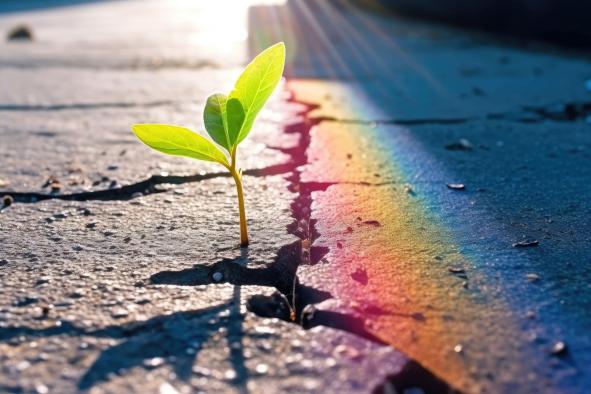-
2025-2026
Advanced Master in Sustainable Economics and Management
-
Schedule
staggered hours
- ECTS Credits 60

In a rapidly changing world, marked by the degradation of biodiversity and profound climate disruptions, UNamur's one-year program, held in the evening, offers a unique opportunity to rethink public policies, corporate strategies, modes of collaboration or even production and consumption, in the light of current environmental and societal challenges.
Focused on the economic, managerial and entrepreneurial transformations linked to the ecological transition, this Master of Specialization is aimed at those who want to understand the crucial challenges of our time and become actors of change.
Dive into an immersive experience where you'll benefit from the insight and guidance of academics and professionals in the field, ready to share their concrete field experience.
The advantages of training at UNamur
A University Education
This program, co-organized by UNamur and Université du Littoral Côte d'Opale, offers a unique learning experience.
UNamur's expertise in Economics and Management
UNamur has an international reputation in economics and management, particularly in crucial areas of sustainable development such as natural resource management, collaborative consumption, inequality and sustainable finance. It is also home to the nationally and internationally recognized DeFiPP and Transitions institutes, which study the impact of transition on nature and our societies.
Partnership with the Université du Littoral Côte d'Opale
UNamur surrounds itself with experts and collaborates with the Université du Littoral Côte d'Opale to give you the benefit of long experience in teaching sustainable development and specific support. This partnership ensures comprehensive, critical training that's open to territorial realities.
Rooted in Field Realities
The program aims to reflect the diverse contexts of the challenges of ecological transition, fostering close interactions with the economic and corporate world, through a seminar dedicated to sharing the experiences of practitioners, the use of real cases in progress, and project dissertations based on concrete field issues.
A Schedule Adapted to Working Life
Courses, taught on weekday evenings (from 6pm to 9pm) and/or Saturday mornings, take place in a department exclusively dedicated to adults returning to school. Thanks to hybrid teaching alternating face-to-face and distance learning (live or replay), you can reconcile training with your professional activity.
A 1-Year Training
The activities of the Master of Specialization in Sustainable Development Management and Economics comprise 60 teaching credits organized over one academic year.
Your goal: to help create a sustainable world

- become economic and business experts, fully aware of sustainable development issues and the complex challenges linked to environmental, digital, social and economic transitions;
- rethink our development model and align it with aspirations that are truly sustainable, resilient, compatible with the finite limits of our planet and the preservation of our ecosystems ;
- propose new production and consumption logics with a circular, even "regenerative" focus;
- accompany companies, local and international public administrations, or even associations and NGOs in their transition process towards a decarbonized economy and adopt sustainable business models.
The program
The Specialized Master's program responds to the need for specialized knowledge in the fields of economics and management, but also to the need to adopt cross-disciplinary approaches to understand and grasp complex problems linked to the challenges of the ecological transition towards (sustainable) development within organizations.
It is divided into 4 modules.
Modules 1 and 2 cover the fundamental concepts of sustainable development in management and economics.
The module 3 opens you up to essential sustainability themes outside the core disciplines or to viewpoints from players in the field. This module also accommodates cutting-edge teaching, such as water management or eco-design and life cycle assessment taught in the Master's degree "Environmental Management - Economics and Management of the Environment and Sustainable Development" at the Université du Littoral Côte d'Opale.
The module 4 is distinguished by the production of a dissertation, conceived as a project integrating a collective work phase and another individual one. The aim is to go beyond theoretical learning by producing a personal analysis. The dissertation is structured around the resolution of a concrete problem from the world of economics or business. It thus offers a unique opportunity to apply your learning to real, current situations, reinforcing your expertise in the field of sustainable development.
Your profile
This specialization master's program is open to students with a solid background in fields that may be other than economics and management (e.g. law, biology, geography...).
This openness encourages heterogeneity within the program. Each student can bring his or her own particular perspective to sustainable development issues, which enriches exchanges during classes or when carrying out projects.
-
<unknown>
Code Name Staff Th.+Ex. Credits/Block 1 EMDDM301 Responsible and collaborative consumption Mossay Emmanuel Hotyat Lara 30h th. 5 EMDDM302 Sustainable and social innovation Klein Pierre-Alexandre Hermans Julie Scheuren Jean-Michel Malcourant Emilie 30h th. 5 EMDDM303 Environmental accounting and sustainable finance Ledru François-Xavier Déjean Frédérique 30h th. 5 -
<unknown>
Code Name Staff Th.+Ex. Credits/Block 1 EMDDM304 Foundations of environmental policies Bequet Ludovic 30h th. + 10h ex. 5 EMDDM305 Natural resources, exhaustible resources and sustainable development Damette Olivier 30h th. + 10h ex. 5 EMDDM306 Assessment of environmental resources and policies Bequet Ludovic 30h th. + 10h ex. 5 -
<unknown>
Code Name Staff Th.+Ex. Credits/Block 1 Soft skillsEMDDM300 Master Thesis Debroise Auguste 30h th. + 30h ex. 15 -
<unknown>
Code Name Staff Th.+Ex. Credits/Block 1 EMDDM307 Crossed perspectives on sustainable development: political, philosophical and sociological approaches" seminar Ruwet Coline Luyckx Charlotte Randour François 30h th. 5 EMDDM308 Seminar "The Ecological Transition: Challenges for Public Policies and Corporate Strategies". Olbrechts Catherine 30h th. 5 EMDDM309 Scientific readings and exchange of perspectives: debating sustainable development" seminar Lanzi Florence 30h th. 5 -
<unknown>
Code Name Staff Th.+Ex. Credits/Block 1 EMDDM310 Transport and the environment De Wolf Daniel 15h th. + 15h ex. 3 EMDDM311 Health and the environment 15h th. + 15h ex. 3 EMDDM312 Water management 12h th. + 12h ex. 2 EMDDM313 Eco-design and life cycle analysis 12h th. + 12h ex. 2
-
-
<unknown>
Code Name Staff Credits Hours/Quarter 1 2 EMDDM301 Responsible and collaborative consumption Mossay Emmanuel Hotyat Lara 5 30h th. EMDDM302 Sustainable and social innovation Klein Pierre-Alexandre Hermans Julie Scheuren Jean-Michel Malcourant Emilie 5 30h th. EMDDM303 Environmental accounting and sustainable finance Ledru François-Xavier Déjean Frédérique 5 30h th. -
<unknown>
Code Name Staff Credits Hours/Quarter 1 2 EMDDM304 Foundations of environmental policies Bequet Ludovic 5 30h th. + 10h ex. EMDDM305 Natural resources, exhaustible resources and sustainable development Damette Olivier 5 30h th. + 10h ex. EMDDM306 Assessment of environmental resources and policies Bequet Ludovic 5 30h th. + 10h ex. -
<unknown>
Code Name Staff Credits Hours/Quarter 1 2 Soft skillsEMDDM300 Master Thesis Debroise Auguste 15 30h th. 30h ex. -
<unknown>
Code Name Staff Credits Hours/Quarter 1 2 EMDDM307 Crossed perspectives on sustainable development: political, philosophical and sociological approaches" seminar Ruwet Coline Luyckx Charlotte Randour François 5 30h th. EMDDM308 Seminar "The Ecological Transition: Challenges for Public Policies and Corporate Strategies". Olbrechts Catherine 5 30h th. EMDDM309 Scientific readings and exchange of perspectives: debating sustainable development" seminar Lanzi Florence 5 30h th. -
<unknown>
Code Name Staff Credits Hours/Quarter 1 2 EMDDM310 Transport and the environment De Wolf Daniel 3 15h th. + 15h ex. EMDDM311 Health and the environment 3 15h th. + 15h ex. EMDDM312 Water management 2 12h th. + 12h ex. EMDDM313 Eco-design and life cycle analysis 2 12h th. + 12h ex.
-
From project management to finance, human resources, procurement and the production of goods and services, every level of organizations and businesses can be shaped to adopt more sustainable practices.
This search for modes of production and consumption compatible with the maintenance of biodiversity and ecosystems becomes your daily objective.
You propose and implement sustainable development management strategies, tools and methods in contexts such as service and consulting businesses.
Your professional opportunities are not limited to one company or one region. By joining private or public research structures or holding positions in national and international decision-making centers, you act, every day, as a driver of change in the service of our planet and our community.
Some examples of professions:
- consultant in corporate social responsibility
- analyst in sustainable development
- environmental project manager
- financial analyst in sustainable investment
- regulatory affairs manager in sustainability.
- circular economy specialist
- sustainable supply chain manager
- assessor of sustainable labels and certifications
- teacher/professor/researcher in sustainable development management and economics
- ....